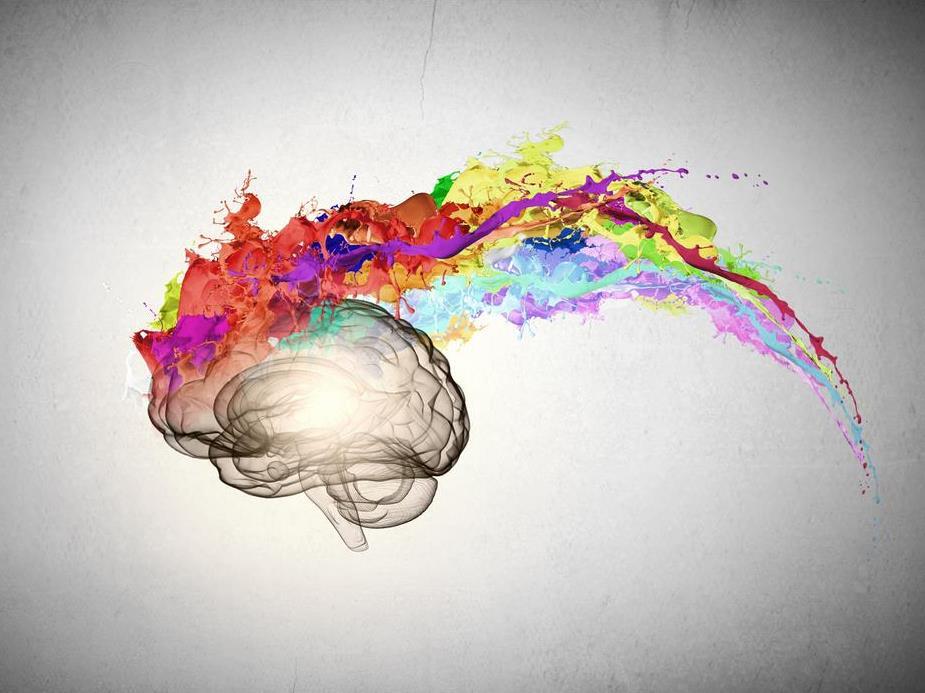
Once upon a time, we were told that our brains stop developing when we reach adulthood, and that as we grew older our brain's power and memory capacity would slowly,but surely diminish.Do we even have to wonder then why so many people get stuck eventually in a mindset that condemns them to believe that their intelligence is fixed and static, that,once they've reached a certain age, they cannot evolve their skills, talents or knowledge any further?
New scientific evidence, however, comes to show that quite the opposite is true. The brain is a super computer with the wondrous, innate ability of neuroplasticity and retention capacity that can be cultivated well into our more mature years.It is constantly evolving and changing and yes, our 'software' can be updated through constant learning. Psychologist Carol Dweck, was the first scientist to investigate, and coin, the notion of a fixed and a growth mindset.
Let's have a look at what each of these two mindsets stands for.
FIXED MINDSET
- Those with a fixed mindset are more likely to buy into the notion that intelligence and talent are static.
- They are convinced effort is futile.
- They avoid challenges to not risk being seen a complete failure.
- They make conscious efforts to avoid feedback from others, as they more often than not view it as personal criticism.
- They tend to feel threatened by the success of others and regard it with bitterness, jealousy and cynicism.
- They are very adept at hiding their flaws so as to avoid being judged or criticised.
- Since they have a deep-rooted belief that putting in any effort whatsoever is futile, they tend to give up to easily or never actually take that first step towards change.
GROWTH MINDSET
- A person with a growth mindset firmly believes that intelligence and talent can be developed through effort and lifelong learning.
- People dedicated to their growth consider any effort toward their goals as the path to mastery.
- They embrace challenges, oftentimes even willingly pursue them to accelerate and enhance their growth and learning.
- It is their deep-seated belief that mistakes and failure are part of their path as a learning tool, so they welcome criticism and feedback as another means of getting further ahead in their growth process rather than take it personally. That means that they are also more open, more vulnerable and consequently more themselves, rather than wearing a mask of perfection, thus hiding their true essence.
- People focused on their growth consider other people's successes as a source of inspiration and learning. It is therefore common for them to voraciously study biographies and autobiographies, studying the lives of the great ones, becoming inspired, learning, applying those nuggets of wisdom into their own lives and eventually evolving into new, greater versions of themeselves.
So, are there any ways of turning around a fixed mindset mentality?
From my experience as a teacher of young ones, and my own personal experience, I can say that it most certainly is! I cannot stress enough how disastrous it is for the children to harbour a fixed mindset. They feel insecure and scared, unwilling to even venture someting different or take a risk at something new, determined that they simply can't. A word I all too often hear and it just makes me sad but also determined to get it out of their system. Is it easy? More often than not, it isn't. But oh, the satisfaction when my efforts are successful... pure bliss and a feeling I've done something good. Doesn't get any better than that!
Some small, yet effective tips are:
- Understand and accept that you CAN improve, as our brains are built to constantly grow and learn. Don't think of yourself as a failure when you struggle with something new, rather see yourself as someone who is learning and improving.
- Most of us have that very negative inner voice that keeps telling us nasty things and keeps preventing us from getting to that growth mindset.Next time it starts pestering you with snide comments, make a conscious effort of ignoring it and switch from the mentality of I can't to thinking that Yes, I can! Admittedly, it takes considerable effort but keep trying, practice makes perfect. The difference it will make is spectacular.
- Remember to reward the great results you've achieved but also the effort you've exerted.Scientific research has shown that this actually leads to enhanced performance.
- Accept that failure, setbacks and any initial confusion are part of the game. View failures as a learning tool and why not, even as a game of sorts. It will make it that much easier to actually have some fun along the way.
- However counterintuitive as it may sound, get out of your comfort zone and opt for the more difficult option/exercise/task. A guaranteed way to grow.
- I'm no big fan of criticism myself but as I've been growing through the decades I've come to realise and accept that it's not personal but a learning process.So, I've been actively seeking out feedback, whether positive or negative. That's exactly what I've encouraged my students to do,too. I've witnessed that with progressive feedback about what they did well and where there's room for improvement they actually felt more motivated to keep going and enhanced their growth.
Like anything else in life, there is also an art to developing a growth mindset. It doesn't just happen overnight, so give yourself time and some grace. If you've set out on the path of growth, don't be dismayed if you don't see immediate results.Be kind to yourself and focus on consistency, taking small, positive steps daily in your chosen direction. Trust that the results will come, for they most certainly will.
“Fine tuning children's thoughts is one way to empower them to work on their mind, feel and behave better”
―



No comments:
Post a Comment